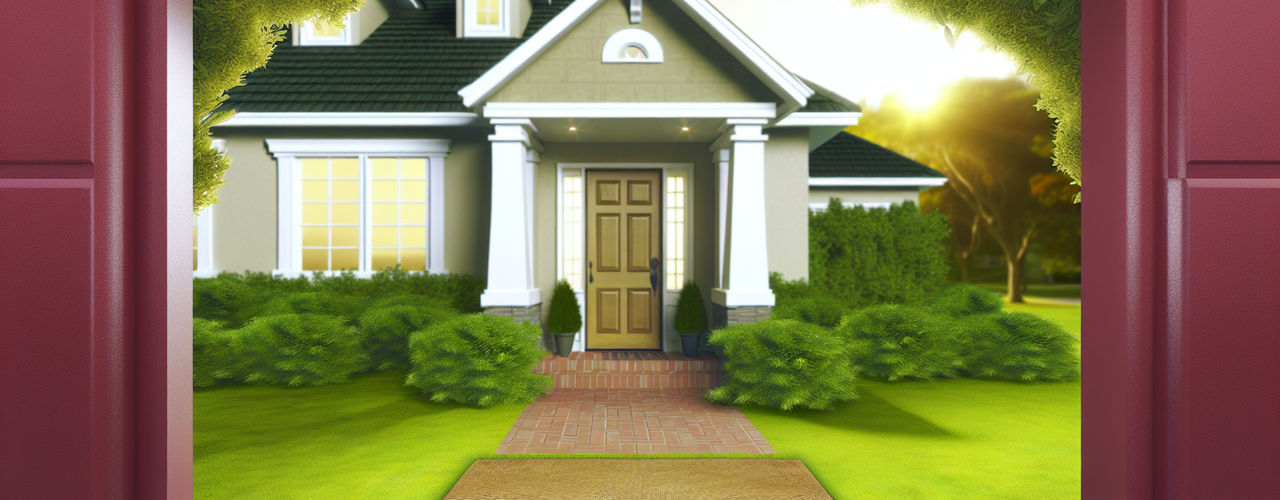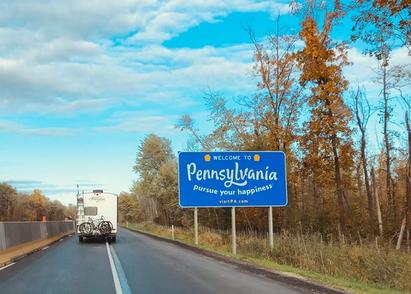Open House: What It Is and How It Works
Written by:
Lauren Hargrave
Lauren Hargrave
Personal Finance Writer
Lauren Hargrave is a writer from San Diego who focuses on technology, finance, and healthcare. She worked in finance for seven years before pivoting to a career in writing, and now, instead of putting numbers into spreadsheets, she writes about them instead.
See full bio
Fact Checked by:
Mike Tassone
Mike is a Co-Founder and Chief Operating Officer of Own Up. He has expertise in all areas of residential lending, having led operations for a top 40 lender in the United States.
See full bio

In the United States, it is very popular to search for homes online. This makes sense as online listing services provide one of the most efficient ways to get a sense of the market. You can see the supply of homes, home prices, and the quality of the homes available on a number of online real estate sites.
Once you’ve narrowed down your home search from all of the online listings to the short list of homes you want to explore, how do you efficiently view those homes in person?
That’s where open houses comes into play.
An open house is one of the most efficient ways for home sellers to share their homes with interested buyers and for homebuyers to view the homes they’re interested in checking out. If you’re a first-time home buyer or are contemplating a move, going to some open houses can be a great way to get a feel for the housing market.
What is an Open House?
An open house is an event often hosted by the seller’s real estate agent that allows homebuyers to come and view the home that’s for sale within a designated window of time. Anyone can attend an open house event: prospective buyers actively shopping for a home, buyer’s agents, curious people who happen to pass by the open house sign – anyone who has an interest in the home is welcome. More or less, any member of the general public can decide to pop in.
Hosting an open house (especially right after a property has been listed) can help a seller or seller’s agent to create a buzz around the listing and generate foot traffic. It also allows the seller to present the home to as many potential buyers as possible in a condensed period of time.
How Do Open Houses Work?
Open houses are typically held on weekends for one to three hours and allow homebuyers to tour the home on their own and at their leisure without the pressure of the homeowner or their agent looking over their shoulder. It is also typical for the open house to be hosted by the listing agent and for the seller to be absent from the property. The homeowner’s absence can be helpful for a few reasons:
- The seller may have emotional ties to the home, so it can feel stressful for them to see potential buyers walking through their property, perhaps opening drawers and pointing out things they do or don’t like.
- It can feel stressful for homebuyers if the seller is there watching them walk through the property, and they may not feel comfortable seeing everything they need to see in order to put in an offer.
- The seller’s agent can be better equipped to answer appropriate questions about the home, the location, the market, etc.
Open houses are typically hosted by the listing agent. The listing agent is also responsible for listing the home on the Multiple Listing Service (MLS), which is the service real estate agents use to list properties for sale. The listing agent will add the date and times of the open house in the MLS listing, and when appropriate, they will supply signage for the open house to help homebuyers find it. The listing agent should also make sure the home is clean and ready to be shown. Oftentimes the listing agent will even stage the home by moving furniture around or bringing in furniture to help potential buyers envision the space in a certain light.
Once potential homebuyers start arriving, the listing agent will typically:
- Collect names and email addresses of attendees to make follow-up easier.
- Greet attendees as they arrive and offer guided tours of the property, if requested.
Listing agents are there to make sure the open house goes smoothly, the house is shown in the best possible light, and that potential homebuyers have the information they need to decide whether or not they want to put in an offer.
What are the Benefits of Attending an Open House?
While searching for homes online can be an efficient way to get a sense of the current real estate market and to narrow down your list of potential homes, it can’t replace seeing a home in person. Remember: Professional photos have a way of making the home look different than it does in person.
As mentioned earlier, staging a home for photos is common to make the rooms look larger and more spacious than they are. Other techniques, like taking photos of the home’s interior with a wide lens and brightening the images can also help with making spaces look larger than they are.
It’s also very difficult to get a realistic sense of the space without physically touring the property. It’s important to get a sense of the home’s condition, which is difficult to do through images.
By attending open houses, you can potentially see multiple properties in one day, which can make it easier to compare the properties to each other. You can also spend as much time as you need in each room to visualize your furniture and family in them, as well as to take note of how the space feels to you.
You will also have the opportunity to ask the listing agent any prepared questions or questions that arise while touring the property. If you’re not familiar with the area, it could be helpful to drive the neighborhood beforehand.
Another benefit to attending open houses as a homebuyer is you get to see the level of interest garnered from other homebuyers. This can help you determine how to structure your purchase offer (should you choose to move forward).
What Should You Expect When Attending an Open House?
Potential homebuyers can expect to be greeted by the listing agent and directed to a sign-in sheet when they arrive. The listing agent will typically provide a brochure or flier that gives important details about the home, such as information about the footprint, square footage, school district, and more. The homebuyers are then free to tour the home at their leisure as long as they don’t venture into any restricted areas. The listing agent will likely check in with homebuyers as they tour the property to see if they have any questions.
As you tour the home, take note of which “must-haves” of yours the home satisfies in addition to any red flags you see. Look for mold in the bathrooms, any paint that seems to be cracking or bubbling, and any water stains on the ceiling or walls. These can be a sign of hidden damage. If you see any of these red flags, you can either ask the listing agent about them yourself, or you can have your buyer’s agent ask for you.
Etiquette for Attending Open Houses
While open houses are intended to provide homebuyers a chance to view the property on their own without much guidance or interference, there is a certain etiquette to follow.
Arrive on Time
Plan to arrive during the designated open house hours and with enough time to tour the property sufficiently. If you arrive too early, the house will likely not be ready to view and you may have to wait in your car. If you arrive too late, you may have to rush through your tour, you could cause the listing agent to be late to another appointment, or you may not be able to see the home at all.
Act Respectfully
Treat the home as if you are a guest. At some homes, this may include taking your shoes off or utilizing agent-provided foot coverings to wear during your tour of the house. That means being respectful and gentle with fixtures, appliances, doors, and drawers.
You should also be respectful of other attendees and their personal space. If a room seems crowded, allow some people to leave before you enter. If it seems that a couple or a homebuyer and their listing agent are having a private conversation, give them space to finish it without hovering too closely.
Don’t take photos or video with your phone or camera unless you’ve received permission to do so. Remember that this is still someone’s home, and the other attendees at the open house could have privacy concerns as well.
What Happens After Attending an Open House?
If you’re still interested in buying the home after the open house, there are several steps you can take.
- First, discuss your thoughts and observations with your real estate agent and get their perspective on the property and how it fits in the market.
- Next, you will want to follow up with the listing agent if you have any unanswered questions about the property, although your own real estate agent will likely reach out to the listing agent on your behalf.
- After you’ve gathered your additional information, decide whether you want to continue pursuing this home. If you do, talk to your real estate agent about how you should go about making an offer.
The Bottom Line
Open houses have benefits for potential homebuyers, serious buyers, and sellers, but it’s important to note how they differ from private showings. Your real estate professional can help to guide you through both types of viewings along your home buying journey.


